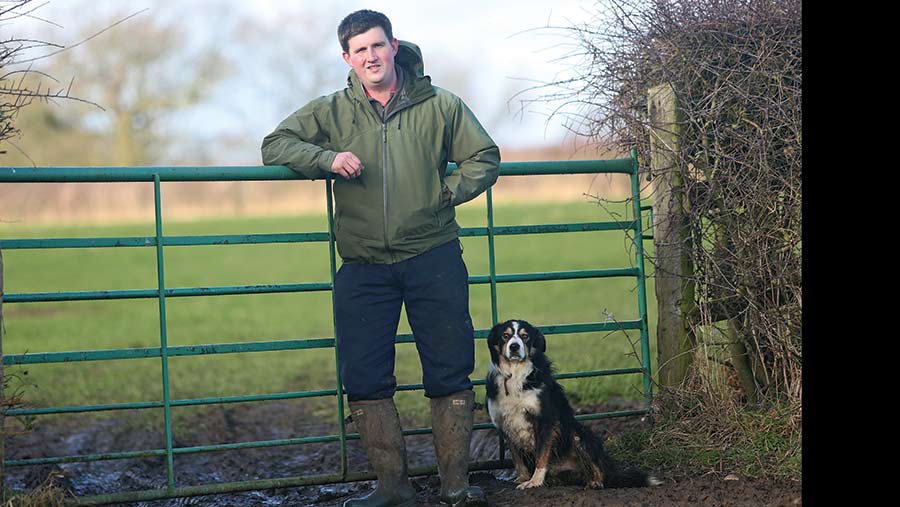Farmer Focus: Good lambs finish off on grass
 ©Richard Stanton
©Richard Stanton Autumn is starting to creep in here at Glen farm.
We have managed to make the last of our silage, which has been sold to a local dairy farm and empty our slurry pit on to the aftermaths.
See also: Read more from the livestock farmer focus writers
Grass growth is still good at about 40-50kg DM/day and the plantain crop is still going strong.
Paddocks have now been shut up for deferred winter grazing and we are beginning to electric fence additional wintering, ready for tupping next month.
Ewes are being flushed on aftermaths after being bolused and winter sheared in the past few weeks.
Despite lower prices than last year, our grades and carcass weights have continued to improve.
The majority of the ram lambs have achieved E and U grades and ewe lambs have hit U, R2 and a few R3ls.
This is not bad from outdoor lambing Romney cross-bred ewes on a low-cost all-forage system. We now only have 30 lambs left.
We have saved considerable money this year by using digestate waste on the land and growing additional (and better) grass through rotational grazing.
As ewe numbers are starting to increase we have planted 20 acres of stubble turnips to graze twin-bearing ewes on prior to lambing.
It will be interesting to see how well this works compared with grass and fodder beet. The hoggets will be lambed on the plantain crop.
The calf unit is going well, with mortality below 0.5% for the last few batches, putting us in the top 5% nationally.
It continues to provide regular and valuable income as will the gritting enterprise, which we are gearing up for in the next couple of weeks.
The last year has been difficult for many farmers and it has made me realise how important it is to have a range of enterprises on a small farm and make sure they are all running well all of the time.
Those who have been complacent in the past are feeling the pinch more now than ever before, times are changing and farmers need to improve if their businesses are to survive.
Jim Beary contract rears 900 calves a year and has a growing flock of Aberfield-cross New Zealand Romneys on a county council farm. He also runs a contract gritting enterprise in winter.
